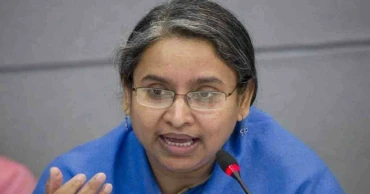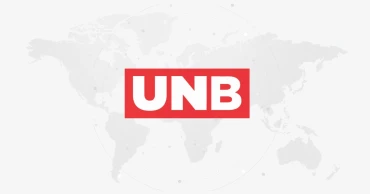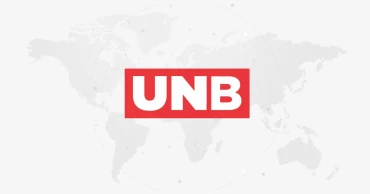warns
Education Minister warns of tough punishment if rumours are spread over SSC exams
Education Minister Dr Dipu Moni on Sunday said stern action will be taken is anyone is found involved in spreading rumours over SSC question papers.
“There is no scope of question leak in the this year’s SSC and equivalent exams, but rumours might spread and those will face tough punishment who will be found involved in spreading rumours,” she said while talking to reporters after visiting Badda High School center in the capital on the first of the SSC and equivalent examinations.
Also Read: No chance of SSC question papers leaking: Dipu Moni
Deputy Education Minister Mohibul Hasan Chowdhury Naoufel , Secretary to the Department of Secondary and Higher Education (DSHE) Soleman Khan, Directorate General of DSHE Nehal Ahmed and Dhaka Education Board Chairman Prof. Tapan Kumar, among others, were also present there.
Social media platforms are being monitored round the clock to prevent spread of rumours, said Dipu Moni adding that action are being taken instantly if any attempt is made to spread rumours.
Replying to a question over the next year’s SSC exam schedule, she said efforts are there to hold the next year’s exams ahead but it will be done taking opinion from teachers across the country.
The Secondary School Certificate (SSC) and equivalent exams for 2023 began on Sunday across Bangladesh.
Also Read: Single admission test for universities from next year: Dipu Moni
SSC exams began at 10 am with Bangla 1st Paper.
According to the Ministry of Education, a total of 20,72,163 candidates are sitting for this year’s SSC and equivalent exams.
2 years ago
Russia’s Lavrov warns EU becoming militarized now, like NATO
Russia’s top diplomat warned Tuesday that the European Union “is becoming militarized at a record rate” and aggressive in its goal of containing Russia.
Foreign Minister Sergey Lavrov told a news conference he has no doubts that there is now “very little difference” between the EU and NATO.
Lavrov said they recently signed a declaration, which he said essentially states that the 31-member NATO military alliance will ensure the security of the 27-member EU political and economic organization.
He was apparently referring to a Jan. 19 EU-NATO declaration on their “strategic partnership” which calls Russia’s Feb. 24, 2022, invasion of Ukraine “the gravest threat to Euro-Atlantic security in decades.”
Also Read: Sweden expels 5 Russian Embassy staff on suspicion of spying
It calls the present moment “a key juncture for Euro-Atlantic security and stability” and urges closer EU-NATO cooperation to confront evolving security threats, saying this will contribute to strengthening security in Europe and beyond. And it encourages the fullest possible involvement of NATO members that don’t belong to the EU and EU members that aren’t part of NATO, but it does not state that NATO will ensure the security of the EU.
Russian President Vladimir Putin has long complained about NATO’s expansion, especially toward his country, and partly used that as a justification for invading Ukraine.
Also Read: UN chief, representatives of the West berate Russian Foreign Minister Lavrov over Ukraine war
The Russian attack, however, sent fear through its other neighbors, and Finland joined NATO earlier this month, seeking protection under its security umbrella after decades of neutrality following its defeat by the former Soviet Union in World War II.
While NATO says it poses no threat to Russia, the Nordic country’s accession dealt a major political blow to Putin.
Finland's membership doubles Russia’s border with NATO, the world’s largest security alliance. Sweden, an EU member, is also seeking NATO membership and is hoping for final approval soon.
NATO chief Jens Stoltenberg defiantly declared last week that Ukraine’s “rightful place” is in the military alliance and pledged more support for the country on his first visit to Kyiv since the invasion. The Kremlin responded by repeating that preventing Ukraine from joining NATO is still a key goal of its invasion, arguing that Kyiv’s membership in the alliance would pose an existential threat to Russia.
Ukraine is also seeking EU membership and in February its leaders pledged they would do all it takes to back Ukraine. But they offered no firm timetable for talks on joining the EU to begin, as Ukraine's President Volodymyr Zelenskyy had hoped.
Russia’s Lavrov was asked whether the war in Ukraine was a miscalculation since Moscow strongly opposed NATO’s expansion and the invasion sparked Finland’s membership, with Sweden next and Ukraine hoping for a road map to join.
“NATO never had any intention of stopping,” the Russian minister replied, pointing to the recent EU-NATO declaration and actions in recent years that saw non-NATO members Sweden and Finland “increasingly taking part in NATO military exercises and other actions that were meant to synchronize the military programs of NATO members and neutral states.”
Lavrov said Russia was promised on several occasions that NATO would not expand, but said “those were lies.”
“Unbiased assessments that our political scientists as well as those abroad made is that NATO sought to break Russia apart," he said, "but in the end it only made it stronger, brought it closer together. So, let’s not make any hasty conclusions now as to what this will all end in.”
2 years ago
Blinken warns Central Asia of dangers from war in Ukraine
The Biden administration on Tuesday pledged to support the independence of the five Central Asian nations, in a not-so-subtle warning to the former Soviet states that Russia’s value as a partner has been badly compromised by its year-old war against Ukraine.
In Kazakhstan for meetings with top Central Asian diplomats, U.S. Secretary of State Antony Blinken said no country, particularly those that have traditionally been in Moscow’s orbit, can afford to ignore the threats posed by Russian aggression to not only their territory but to the international rules-based order and the global economy. In all of his discussions, Blinken stressed the importance of respect for “sovereignty, territorial integrity and independence.”
The Central Asian states have hewed to a studied position of neutrality on Ukraine, neither supporting Russia’s invasion nor U.S. and Western condemnations of the war.
“Ever since being the first nation to recognize Kazakhstan in December of 1991, the United States has been firmly committed to the sovereignty, territorial integrity and independence of Kazakhstan and countries across the region,” Blinken said after meeting in Astana with the foreign ministers of the so-called C5+1 group, made up of the U.S. and Kazakhstan, Kyrgyzstan, Tajikistan, Turkmenistan and Uzbekistan.
Also Read: Blinken tours Turkey’s earthquake zone, pledges $100M in aid
“In our discussions today, I reaffirmed the United States’ unwavering support for Kazakhstan, like all nations, to freely determine its future, especially as we mark one year since Russia lost its full-scale invasion of Ukraine in a failed attempt to deny its people that very freedom,” Blinken told reporters at a news conference with Kazakh Foreign Minister Mukhtar Tileuberdi.
Tileuberdi thanked Blinken for the U.S. commitment to Kazakhstan’s freedom, but signaled that his country was unlikely to adopt either a pro-Russian or pro-Western position. Tileuberdi said Kazakhstan would continue to act in its own national interest given “the complex international situation.”
“Our country continues a balanced multilateral foreign policy,” he said.
Tileuberdi noted that while Kazakhstan has very close and historic ties with both Russia and Ukraine, it would not allow its territory to be used for any Russian aggression or sanctions evasion. He added that even though Kazakhstan shares the world’s longest land border with Russia, it did not see a threat from Moscow.
Blinken also held separate meetings in Astana with the foreign ministers of Kyrgyzstan, Tajiistan and Turkmenistan. After visiting Kazakhstan, Blinken arrived in Tashkent, the capital of Uzbekistan, on his first trip to Central Asia as secretary of state.
None of the five former Soviet republics in Central Asia, traditionally viewed as part of the Kremlin’s sphere of influence, publicly backed the Russian invasion. Kazakhstan welcomed tens of thousands of Russians fleeing from the military call-up last fall. Kazakh President Kassym-Jomart Tokayev has spoken by phone with Ukrainian President Volodymyr Zelenskyy three times since Russian troops rolled into Ukraine last February, calling for a diplomatic resolution of the conflict in accordance with the U.N. charter and international law.
However, all five Central Asian republics, along with India, which Blinken will visit next after Uzbekistan, abstained in a vote to condemn the invasion as a violation of core international principles last week at the U.N. General Assembly, on the first anniversary of the war.
“If we allow (those principles) to be violated with impunity, that does open the prospect that Russia itself will continue to consider further aggression against other countries, if it sets its sights on them, or other countries will learn the wrong lesson and would-be aggressors in every part of the world will say ’well, if Russia can get away with this, then we can too,’” Blinken said. “That’s a recipe for a world of conflict, a world of instability, a world that I don’t think any of us want to live in.”
“So, that’s why it’s been so important for so many countries to stand up and say, no we don’t accept this,” he said.
The U.S. has for decades sought — without great success — to wean the former Soviet nations of the region from Moscow’s influence. Some, notably Uzbekistan and Tajikistan, assisted the U.S. logistically during its 20-year conflict in Afghanistan, but their ties to Russia remain deep and extend to the economic, military and diplomatic spheres as members of the Commonwealth of Independent States, a Moscow-dominated grouping of ex-Soviet nations.
3 years ago





